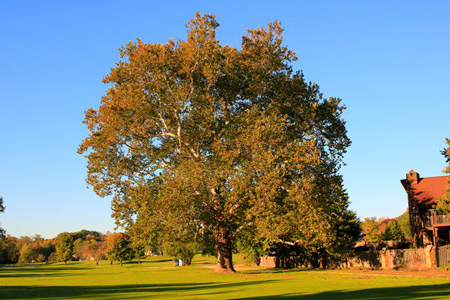City launches first contest in celebration of Arbor Day
Carmel has been recognized as a Tree City USA for 27 years and a Tree City Growth Award winner for more than 20 for its dedication of preserving and increasing the number of trees in the community. This is due primarily to an aggressive street tree program that, last year, added 600 more trees to city streets and boulevards.
Now city officials are asking local residents to check the trees on their own property to see if they have the biggest tree in Carmel.
For the first time, the City’s Urban Forestry Committee is celebrating Arbor Day with a Big Tree Contest. Entries will be accepted through April 30 from local residents to determine the biggest tree in 10 different species categories: Cottonwood, Elm, Hackberry, Honeylocust, Maple, Oak, Sweetgum, Sycamore, Tulip and Walnut/Hickory. Winners in each category will get a $50 gift card and an overall Big Tree winner will take home a custom basket of artisan wood gifts.
You can send your submissions to bigtree@carmel.in.gov.

Photo provided
Please include contestant’s name, property owner’s name (if different), location of the tree, tree species and circumference. Winners will be chosen by the Urban Forestry Committee and will be showcased at the May 7 Carmel Farmers Market at a special booth where free tree seedlings will be given away along with information on how to care for your trees.
While Carmel often removes trees as properties are developed, many hundreds more are preserved because of the city’s low urban density. The city builds boulevard-style medians on many of its major streets with trees in the middle and on the sides of the lanes to create a tree canopy. River Road, north of Main Street, is one example. Those trees were planted in the late 1990s and have for several years completely shaded the roadway, cutting down on that heat island, which is better for the environment.
Carmel employs three full-time staff members dedicated to urban forestry and contracts with several other companies to help with tree maintenance and planting. The city’s urban foresters review every new development’s landscaping plan to approve the type and number of non-invasive species of trees being proposed. Good examples of this are developments along U.S. 31 where the city required hundreds of trees to be planted in areas that used to be clear-cut farm fields.
For more information on this contest, visit carmelurbanforestry.com.
